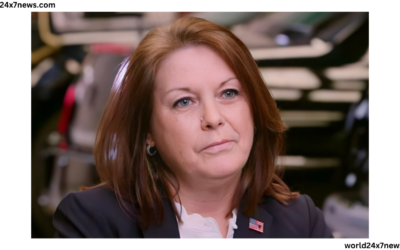ABC Whistleblower: Unveiling Truths and Exposing Corruption

In today’s corporate world, transparency and ethics are key components of building trust. But what happens when corporations themselves cross ethical lines? That’s where whistleblowers come into play. The ABC Whistleblower case is a perfect example of how one individual’s courage can expose hidden corruption and malpractice within a corporation. But what exactly does it mean to be a whistleblower, and what are the risks and rewards associated with it?
What is a Whistleblower?
A whistleblower is an individual who exposes illegal or unethical practices within an organization. This can include anything from financial fraud and environmental violations to workplace discrimination and health hazards. The act of whistleblowing is not only about revealing misconduct but also about standing up for what is right, even when it may come at great personal cost.
The Role of ABC Whistleblower
Whistleblowing in Corporate Settings
In corporate environments, whistleblowers are often employees or insiders who have access to confidential information. These individuals may uncover fraudulent practices, misuse of company funds, or even cover-ups of regulatory violations. The ABC Whistleblower is a prime example of how a single voice can challenge the power dynamics within a large corporation.
How ABC Whistleblower Stands Out
Unlike many other whistleblower cases, the ABC Whistleblower took action in a highly publicized way, revealing not only internal corruption but also the failure of regulatory bodies to hold the corporation accountable. This case gained widespread attention and set a precedent for future whistleblower cases.
Legal Protections for Whistleblowers
Whistleblower Protection Laws
To protect whistleblowers from retaliation, various countries have enacted laws that safeguard these individuals. These laws ensure that whistleblowers can report misconduct without fear of losing their jobs or facing legal repercussions.
International Laws Governing Whistleblowers
U.S. Whistleblower Protection Act
In the United States, the Whistleblower Protection Act of 1989 provides federal employees with the right to report illegal actions within their agencies. This law protects them from retaliation and ensures their anonymity.
European Whistleblower Protections
In Europe, the European Union Whistleblower Directive, implemented in 2019, offers similar protections to those reporting illegal activities. Companies in the EU are now required to establish secure reporting channels to protect whistleblowers from retaliation.
The Importance of Whistleblowing
Safeguarding Corporate Ethics
Whistleblowing plays a vital role in maintaining ethical standards within organizations. Without whistleblowers, unethical practices would go unchecked, leading to widespread harm to employees, customers, and even society.
Exposing Corruption and Malpractice
Whistleblowers expose corruption, and by doing so, they shine a light on practices that would otherwise remain hidden. Their actions can lead to investigations, reforms, and changes in policies.
High-profile Whistleblower Cases
Cases like Edward Snowden’s revelations about government surveillance and the Panama Papers, which exposed global tax evasion, highlight the powerful role whistleblowers play in society. The ABC Whistleblower stands in a similar light, having uncovered significant corporate misconduct.
ABC Whistleblower’s Journey
How the Whistleblower Came Forward
The ABC Whistleblower came forward after discovering fraudulent financial practices within ABC Corporation. The whistleblower faced immense pressure but chose to report the wrongdoing to the authorities.
Key Findings and Revelations
Impact on ABC Corporation
The revelations brought forward by the ABC Whistleblower had significant repercussions for the corporation. Not only did it lead to legal actions, but it also affected the company’s reputation and stock prices.
How the Revelations Changed Policies
As a direct result of the whistleblower’s actions, ABC Corporation was forced to revise its internal policies. This included stricter oversight, more transparent financial reporting, and a commitment to ethical business practices.
Consequences of Whistleblowing
Personal and Professional Risks
Whistleblowers often face serious consequences for their actions. These can include job loss, ostracization from colleagues, and even legal battles. In the case of the ABC Whistleblower, their professional and personal life was severely impacted.
Corporate Repercussions
Retaliation and Legal Battles
Corporations may retaliate against whistleblowers, leading to lengthy legal battles. However, legal protections can help mitigate these risks, though they are not always foolproof.
Support for Whistleblowers
Organizations like the Government Accountability Project and Transparency International offer support to whistleblowers, helping them navigate the complex legal and emotional challenges that arise.
Whistleblower Ethics and Moral Dilemmas
The Moral Duty of Whistleblowers
Whistleblowing is often seen as a moral obligation to protect the greater good. But it also presents moral dilemmas, especially when loyalty to an employer is at stake.
The Conflict Between Loyalty and Integrity
Balancing Personal and Corporate Responsibility
Whistleblowers face an inner conflict: Should they remain loyal to their employer or act on their ethical responsibility? The ABC Whistleblower chose integrity over loyalty, which ultimately led to positive change within the corporation.
Long-term Impact on Corporate Culture
Whistleblowing can lead to lasting changes in corporate culture, promoting transparency and accountability in the long run.
How to Blow the Whistle Safely
Steps for Protecting Your Identity
Whistleblowers must take precautions to protect their identity. This includes using anonymous reporting channels and securing personal communications.
Legal Counsel and Support
Confidential Channels for Reporting
Many companies and organizations offer confidential reporting systems that allow employees to report issues without revealing their identity.
Seeking External Advice
Before blowing the whistle, it’s important to seek legal advice and consult external experts to understand the risks involved.
The Future of Whistleblowing
Trends in Corporate Whistleblowing
Whistleblowing is becoming more common in corporate settings as employees become more aware of their rights and protections.
Technology’s Role in Safeguarding Whistleblowers
Anonymous Reporting Systems
With advancements in technology, whistleblowers can now report misconduct through secure, anonymous platforms that protect their identities.
How Blockchain Technology Can Help
Blockchain technology offers new possibilities for whistleblowers, enabling secure and unalterable records of reported misconduct.
Conclusion
The ABC Whistleblower case has demonstrated the profound impact that whistleblowing can have on corporations and society at large. While the journey is often fraught with risks, the long-term benefits of exposing corruption and promoting ethical business practices cannot be overstated. Whistleblowers are crucial in holding organizations accountable and ensuring that justice prevails.
Frequently Asked Questions
What happens if a whistleblower’s identity is exposed?
If a whistleblower’s identity is exposed, they may face retaliation such as job loss, harassment, or legal challenges. However, laws and organizations exist to protect them.
Can whistleblowers be protected from retaliation?
Yes, whistleblowers can be protected under various national and international laws that prevent retaliation, such as the U.S. Whistleblower Protection Act and the EU Whistleblower Directive.
How does a whistleblower case affect a corporation’s image?
Whistleblower cases often damage a corporation’s image, as they expose unethical or illegal practices. However, they can also lead to positive changes in corporate governance.
Are there financial rewards for whistleblowers?
In some cases, whistleblowers can receive financial rewards, especially when their actions result in government recoveries of funds, such as through the U.S. False Claims Act.
What should I do if I witness unethical practices in my workplace?
If you witness unethical practices, consider seeking legal advice and exploring confidential reporting channels within or outside your organization to ensure your protection.















